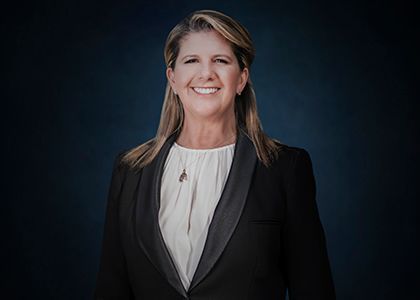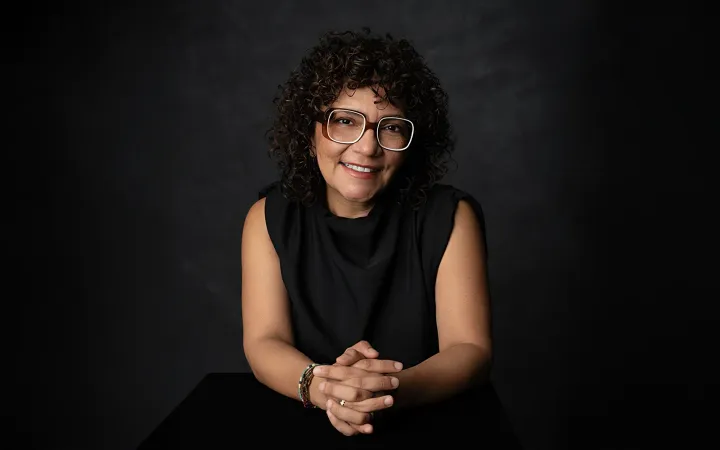
Por Martha Herrera

En un país donde las mujeres dedicamos tres veces más tiempo que los hombres a las tareas de cuidado y donde el valor económico de este trabajo no remunerado equivaldría a casi el 30% del PIB nacional, surge una pregunta crucial: ¿quién cuida a quien cuida?
Todas las personas tenemos derecho al cuidado, lo que significa el derecho a cuidar, a ser cuidadas y al autocuidado. Este derecho se garantiza a través del conjunto de actividades cotidianas de gestión y sostenibilidad que se realizan dentro o fuera del hogar y permite el bienestar físico, biológico y emocional. Los cuidados son actividades que implican entender y atender a personas que no pueden resolver todas o parte de sus necesidades físicas, emocionales y/o afectivas.
Con base en lo anterior, quiero destacar tres reflexiones. Primero, la organización del cuidado es un asunto de género porque afecta desproporcionadamente el bienestar y posibilidades de movilidad social de las mujeres. Las disparidades en el ámbito del cuidado tienen un impacto profundo en la vida de las mujeres, en nuestra autonomía y bienestar, y en las oportunidades económicas a las que podemos acceder. La última Encuesta Nacional de Ingresos y Gastos de los Hogares (ENIGH, 2020) revela que por cada 100 horas que las mujeres dedican al trabajo no remunerado de cuidados, los hombres destinan sólo 40.
Segundo, este desequilibrio coloca una carga desproporcionada sobre nosotras, quienes destinamos hasta 6 horas diarias a estas labores vitales. Además, las mujeres que se encuentran dentro de la industria de cuidados enfrentan obstáculos en el mercado laboral y a menudo se ven atrapadas en empleos precarios.
Nancy Fraser reconocida teórica feminista, argumenta que el trabajo de cuidados constituye una "economía oculta" que no se contabiliza en las métricas tradicionales de crecimiento económico. Según el Instituto Nacional de Estadística y Geografía (INEGI, 2020), si se valorizara económicamente el trabajo doméstico y de cuidados no remunerado en México, representaría un valor equivalente a 6.4 billones de pesos, comparable al de los sectores de construcción y minería juntos.
Y tercero, reconocer que las sociedades requieren cuidados y que las personas cuidadoras están fuera de los esquemas de seguridad y protección social es crucial para reducir las desigualdades y promover la movilidad social. Esto evidencia la necesidad apremiante de reconocer y valorar el trabajo de cuidados, transformando nuestras economías y proponiendo nuevas soluciones para abordar las desigualdades y la pobreza en pos del crecimiento y desarrollo sostenible.
En este contexto, Mercedes D'Alessandro propone replantear el enfoque hacia los cuidados como una responsabilidad compartida por las familias, empresas, organizaciones y el sector público. Debemos desnaturalizar, además de desfamiliarizar y desfeminizar la carga históricamente impuesta a las mujeres y permitir que cada mujer, desde su libertad, autonomía y respaldada con apoyo pueda desarrollar su vida y alcanzar su máximo potencial.
¿Pero cómo avanzamos hacia un sistema de cuidados que promueva la movilidad social de las mujeres? ¿Cómo logramos que el Estado cumpla su rol garante del cuidado?
El primer paso, entonces, es seguir impulsando este tema en el debate público, como ya lo han hecho algunas de nuestras legisladoras federales y activistas, en apostar por la contabilización del trabajo de cuidados como un motor de bienestar, competitividad y movilidad social para nosotras las mujeres.
Por ello, debemos promover las políticas fiscales y los recursos financieros que se requieren para que el Estado asuma el cuidado como una inversión estratégica y respalde políticas integrales de cuidado bajo un marco de previsibilidad y apropiación ciudadana, trascendiendo la lógica de los servicios para centrarnos en las personas y en sus derechos, porque apostar en los cuidados es construir un camino de oportunidades y cerrar las brechas de género.
En este sentido, debemos seguir sumando y construyendo alianzas en esta labor inaplazable por una infraestructura de cuidados, resulta imperativo diseñar e implementar las estrategias que desde lo local y de abajo hacia arriba, permitan transformar las dinámicas del ejercicio de poder y los modos en los que políticamente nos vinculamos sin que las mujeres tengamos que ser las superheroínas que llevamos todo el peso de los cuidados en nuestros hombros.
*Martha Herrera González es secretaria de Igualdad e Inclusión del Gobierno de Nuevo León y Coordinadora del Gabinete de Igualdad para Todas las Personas.
Activista apasionada por el desarrollo y la transformación social, cuenta con estudios de posgrado en diversas universidades e institutos de Canadá, Estados Unidos, España, Francia y México.
Desde hace más de 35 años ha dedicado su carrera profesional a la banca de desarrollo, organismos intermedios, sector privado y público .
Las opiniones expresadas son responsabilidad de sus autoras y son absolutamente independientes a la postura y línea editorial de Opinión 51.
Más de 150 opiniones a través de 100 columnistas te esperan por menos de un libro al mes.






Comments ()